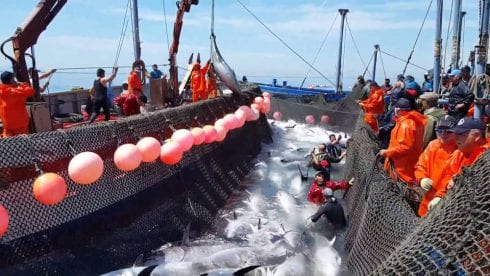WOULD you like to buy food without growth enhancers, steroids or impurities? Just get hold of good old-fashioned, organic food, fresh and without additives or pesticides?
Well, with the help of the Slow Food Movement that could be possible.
The group, which set up in Italy in 1986 is hoping to make further inroads into Andalucia this year.
Set up as a bulwark to Fast Food companies and agribusinesses, which ‘rip off the producers and consumers’, it is promoting a return to basic agriculture.
While the movement already has 30 groups in Spain, just two are in Andalucia.
With so much organic food coming from the region, there is a need to get organised into groups to promote and market it.
“The movement is vital with Europe losing 90 per cent of its traditional food diversity over the last century”.
Slow Food groups organise activities including dinners, tapas competitions as well as promote the local organic market.
They encourage restaurants to use Slow produce and encourage a greater stocking of local produce in local shops.
The movement is vital with Europe losing 90 per cent of its traditional food diversity over the last century.
It was for this reason that Italian journalist Carlos Petrini set up the movement.
Fed up with the way his favourite food dishes had lost their traditional rich flavours due to industrialised farming, he wanted an antidote to bland, Fast Food.
Spurred on by the opening of a branch of McDonalds in the celebrated Piazza de Spagna, in Rome, he organised a series of demonstrations to oppose it.
Two decades later and the Slow Food Movement has groups in 132 different countries and counts 85,000 members worldwide. In the UK there are 100 separate groups (or conviviums, as they are known).
The group increasingly takes on fast food companies and the big agribusinesses and fights to preserve and expand the availability of traditional foods.
Nowhere is it more needed than in Spain.
With the growth of industrialised fishing and farming here, there is a big fight to ensure that small scale producers can continue growing by ecological means with traditional seeds and breeds.
One only has to look at the huge profits made by supermarkets and middle men to recognise the problem. It also explains why local farmers markets and weekly box deliveries are growing ever popular.
There is also the problem of ensuring that the ever dwindling areas of good fertile land – such as the famous vega of Antequera, or the Granada plains – are not converted into non-productive golf urbanisations, shopping centres, airports and more housing.
The Green Guide, with support from the Olive Press, is hoping to support a local expatriate-led convivium centred on a town such as Ronda, Tarifa or Orgiva with members coming from all around the surrounding area.







There are actually four slow food convivia in Andalucia: Granada, Sierra Sur de Jaen, SevillaySur and Xerez.
I only have websites for SevillaySur and Xerez (my convivium):
http://www.slowfoodsevillaysur.es/
http://www.slowfoodxerez.com/
The other two can be contacted via http://www.slowfood.es/
Hi Justin. Thanks for your comment and information on slow food groups in Andalucia. Would you be happy for us to include your comment in the letter’s page of our next paper? Also, as you seem clued-up on slow food groups in the area, would you be happy for people to contact you for more information?
Glad you liked our Slow Food STL Logo